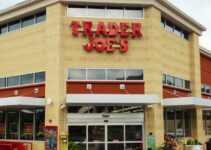Costco Wholesale Corporation is a retail chain warehouse club store American multinational company. The wholesale warehouse brand has established a network of approximately 879 stores in over 15 countries across the world. Costco ranks at the 11th position on the Fortune 500 companies list. Today, we’ll discuss the supply chain analysis of Costco; it focuses on various SCM elements like procurement planning, inventory management, warehousing, automation, transportation, and distribution.
Supply Chain Analysis of Costco
Let’s discuss the main elements of the supply chain analysis of Costco are as follows;
Low SKU
Costco manages and carries approximately 3700 SKUs (stock keeping units); whereas Walmart carries 100,000 SKUs. The SKUs of Costco are very low compared to other competitors; they comprise both customized and seasonal items. However, having a limited SKU offers various benefits to the company.
Limited SKUs would require the company to hire a limited number of people to manage small stock efficiently. The brand has to deal with a limited number of suppliers, partners, and contractors. They need to manage the limited data; limited forecasting and replenishment activity. For the seasonal products and items, they don’t require any replenishing activity.
Inventory Turnover
The inventory turnover rate of Costco is approximately 32 days and it shows the great operational efficiency of the retail chain brand. Compared to the size, scale, and operations of Costco, it has a very low inventory turnover, and the retail chain brand doesn’t need to carry a lot of inventory and stock-keeping costs.
Cash flow is the other main element of efficient supply chain and inventory management processes. If companies are selling more items, and they’re generating more cash it allows them to finance and fund their inventory and stock. Costco has also developed a very efficient reverse logistics system and it allows them to earn the trust and confidence of customers and encourages them to buy more.
Strategic Alliance and Collaboration
Costco has developed strategic alliances and collaborated with the following partners;
- Gove Co
- Hana Group
- Sesame
- WWF
- Inter Alia
The strategic alliance with suppliers, vendors, technology, and logistics service providers to manage efficiency and innovation in the supply chain. It comprises developing new solutions, sharing data and information, and investing in the infrastructure to deal with various types of challenges. Costco has been successfully adding value, building relationships with suppliers, and increasing energy to build relationships with suppliers and vendors.
Vertical Integration
Costco has acquired various types of startups to increase the in-house supply chain capabilities of the company. For instance, the company bought Innovel Solution for 1 billion USD to manage the large and massive deliveries, and the retail chain brand offers these services to its e-commerce platform and online customers. The Innovel Solution allows them to perform the middle and last mile deliveries. However, the company is planning to include the logistics and warehousing facilities in its network.
Advanced Technology
Costco is implementing the latest and advanced technology to increase efficiency and visibility in its supply chain network. It comprises integrating RFID technology, upgraded applications and tools, automation technology, artificial intelligence, and data analytics to perform various processes. However, it helps them in the following ways;
- Effectively responding to the changing market dynamics
- Lower cost
- Streamlining various processes
- Improved logistics, inventory management, and demand forecasting
Sustainability
Costco has made a strong commitment to achieve supply chain operational sustainability and reduce its carbon footprint. The retail chain wholesale brand puts a great emphasis on environmental sustainability by integrating with various social and environmental considerations, efficient sourcing, and distribution.
- Reducing carbon emission
- Limited environmental waste
- Responsible sourcing of raw material
In fact, the retail chain brand has made significant contributions to environmental charitable organizations like Kirkland. The company promised to release data on plastic packaging and recyclable content to show its commitment to society and the environment.
Local Homegrown Brands
Costco Kirkland Signature is the favorite brand of many customers; the local homegrown brand played a key role in the growth and success of the company. The Kirkland Signature offers a wide range of products and services to the customers comprising of clothing, consumer electronics, gourmet food, and others at the market competitive pricing.
Along with high-quality of gourmet, Kirkland Gourmet offers products at a lower price than other competitors. The bulk and wholesale procurement allows customers to save costs at a lower price, and it amplifies the company’s sales.
Conclusion: Costco Supply Chain Analysis | Costco Supply Chain Management
After an in-depth study of the supply chain analysis of Costco; we have realized that Costco is the world’s leading retail chain wholesale brand. If you are learning about the Costco supply chain analysis; then you should keep in mind the abovementioned SCM elements; procurement, planning, transportation, automation, inventory management, and sortation.
Ahsan is an accomplished researcher and has a deep insight in worldly life affairs. He goes Live 3 days a week on various social media platforms. Other than research writing, he’s a very interesting person.


